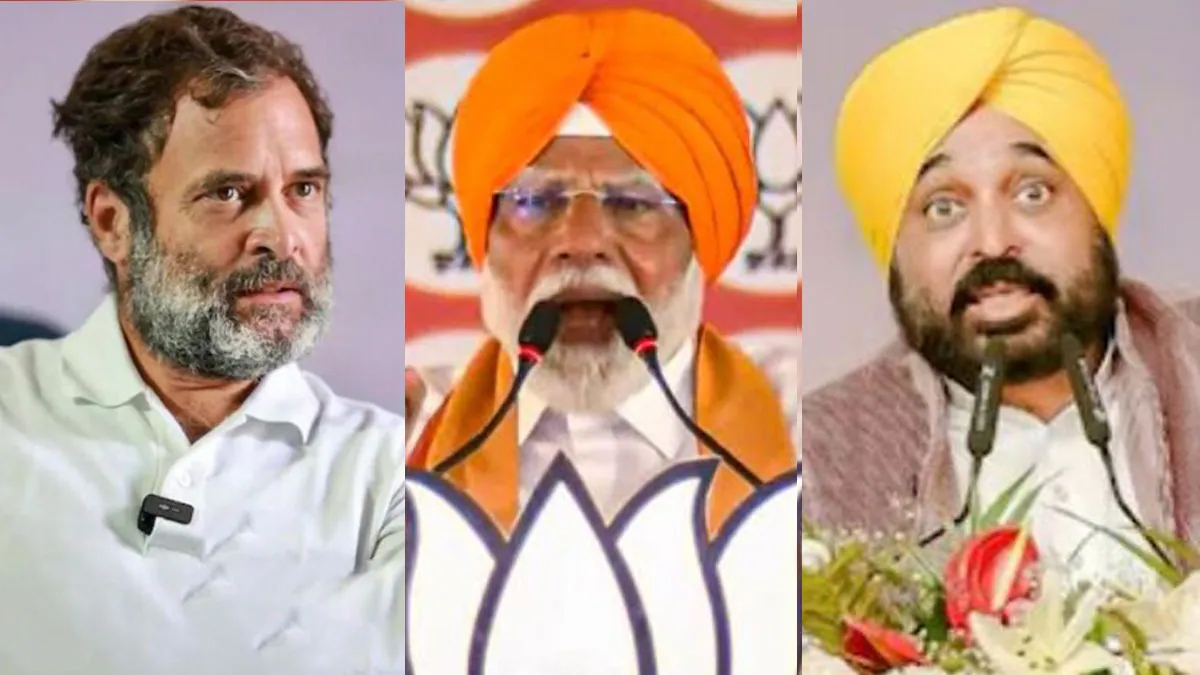In the race to win more seats without understanding ground reality, political parties could not form alliances among themselves
 KRC TIMES Desk
KRC TIMES Desk

Prof Sukhdev Singh
The 2024 general Lok Sabha elections in Punjab have been conducted smoothly without much enthusiasm and hullabaloo in an atmosphere of mysterious silence among the people. Except for the CPI-CPIM alliance, most other political parties had fielded their candidates in all thirteen constituencies, claiming victory in every constituency, although with a sense of doubt and fear hidden in their hearts.
The lack of hype among the voters can be fathomed by the fact that the voter turnout rate in the state is lower than that at the national level and that in the previous general elections. In the race to win more seats without understanding ground reality, political parties could not form alliances among themselves.
To achieve that goal, instead of proposing to change their policies in favour of a better life for people, the parties engaged in the game of engineering defection by each other’s leaders to their side, hoping to present strong leaders as their candidates to the people. They nursed the illusion that they could camouflage the party image by swapping the leaders.
The illusion of winning elections on the strength of defected leaders rather than promising the pro-people performance and contesting on the strength of their own leaders speaks volumes about the character and level of democratic practice by the political parties within and without. Unfortunately, the electorates in the 2024 Lok Sabha elections in Punjab have experienced that in abundance.
But fortunately, the state electorate could not be taken in by the moves of party switching, communicating to the parties to work on the ground and trust their workers instead of just strategizing the party switch. The message was packaged in a lackadaisical atmosphere before the election, and the results were unexpected for the parties and candidates.
Without understanding the people’s minds, the long-time allies Shiromani Akali Dal and Bharatiya Janata Party could not agree on an alliance in the 2024 elections and fielded their separate candidates with a target of winning 13 out of 13 seats in Punjab.
Despite the AamAadmi Party and the Indian National Congress having an alliance at the national level, they could not agree on the distribution of seats and fielded their own candidates in each constituency. Fantasizing about their victory in the 2024 Lok Sabha elections based on what happened in the 2022 assembly elections, the AamAadmi Party took the people for granted, though they too trusted the turncoats and paratroopers more than their hard-core workers.

They mistook themselves as the favourites of the people with power to mesmerize them, without realizing that the voters had elected them to take revenge on the traditional political parties because of their unfulfilled promises and ineffective governance.
Apart from these, other political parties like the BahujanSamaj Party (BSP), the Akali Dal (Maan), and the CPI-CPIM also fielded their candidates. But the voters have surprised everyone by electing seven Congressmen, three AAP, one Akali Dal, and two independent candidates, applying their logic of rejecting others rather than electing the winner without any conspicuous fervour for the winner.
The ruling party in the state, the AAP, has won only three seats with a vote share of 26.02% and has registered its lead in only 32 assembly segments, while the AAP had won in 92 assembly constituencies with a vote share of 42% in the 2022 state assembly elections. These election results call for a serious introspection by the AAP, reminding it of its 2022 promise of ‘governance with a change’.
The ruling party at the centre, the BJP, has not won a single seat despite managing a massive defection of senior Congress leaders to it. However, due to the strength of these leaders, it has succeeded in increasing its vote share to 18.56% and leading in 23 assembly constituencies.
But this vote share will go with these leaders when they leave the party unless it works hard to respond to the needs and sentiments of the people of the state. Therefore, instead of relying on the increased vote share, the BJP should rely on its actions in the public interest and should understand the minds and moods of the people.
The voters have given the Congress a majority in 7 Lok Sabha constituencies with a vote share of 26.3% and a lead in 38 assembly constituencies. Despite its victory in 7 Lok Sabha constituencies, the Congress should project its workers rather than their family members as the prospective leaders and connect with the people on the ground to recover its reduced vote share.
The voters have given victory to the two new independent candidates, while neither has been a heavyweight leader. No political party has extended its support in their favour. Both candidates have contested the elections in different ways and on different qualifications, but the people have exercised the same major principle in electing them: ‘to reject all others’ and elect ‘anyone with some difference’ while reserving their right to see how the winner will act.
The voters of Punjab have made it clear that their identity and their political behaviour are primarily secular and non-partisan. They are not swayed by waves or polarization. Despite the fact that Punjab’s population is predominantly Sikh and rural, 40% of the total population is Hindu, and one-third of the total is Dalit, no religious-caste-polarisation narrative could significantly influence the electorate’s choices.
The victory of the two independent candidates, though apparently religious and rural, is not in essence a religious polarization but a result of local concerns and sympathy with the more sinned against than sinning and the general principle of rejecting the non-performers with power to perform.
While in Khadur Sahib, the successful candidate gained favour for the anti-drug addiction campaign and sympathy for his imprisonment, in Faridkot, the winning candidate was favoured on account of the electorate’s response to the political parties’ ambivalence towards desecration of the Guru Granth Sahib and his distinct background. His election is the people’s rejection of political parties’ blame game against each other instead of any concrete action on the ground.
Although some commentators, activists, and candidate supporters have tried to present them as panthak candidates, their victory is not as such in reality. Were it so, the candidates of Akali Dal (Maan) could have gained on their panthic agenda. Above all, neither of these two winning candidates has made any hate speech towards the Hindu community, nor has the Hindu community openly opposed them as sectarian candidates.
The voters of Punjab have rejected the discourses of religion, caste, and urban/rural polarization. They have voted in Congress on their promise of a minimum support price for agricultural produce to bring it out of distress: agriculture is still the backbone of Punjab’s economy.
Be it Hindu or Sikh, urban or rural, upper caste or Dalit, everyone understands the importance of agriculture in the state. In fact, it is part of the collective consciousness of Punjab. Election results in Punjab are mainly based on the process of rejecting other candidates rather than selecting the winning candidates.
(The author is former Professor Guru Nanak Dev University, Amritsar)



